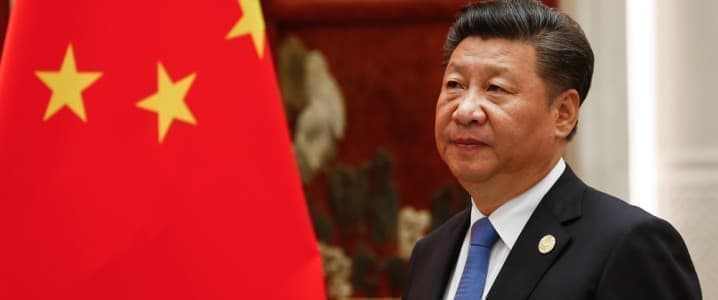After months of lockdowns under the severe and much-maligned zero Covid policy, the Chinese economy is a sleeping giant. As the nation starts and stops its way into re-opening for business, it remains unclear what impact the world’s second-biggest economy will have on the current global supply chain issues. In the midst of plateaued economic growth and an intensifying energy crisis, adding China back into the mix is a variable with no clear outcome. On the one hand, ramping up China’s considerable energy and industrial production capacity may help ease the squeeze. On the other hand, re-opening the Chinese economy will also increase the nation’s energy demand on the global market. “China has long been the biggest engine of global prosperity, contributing 28 percent of GDP growth worldwide from 2013 to 2018 — more than twice the share of the US,” the Financial Times reported earlier this month, citing data from the International Monetary Fund (IMF). In fact, when the World Bank announced that it would be slashing its forecast for global gross domestic product (GDP) growth this year, it cited the lockdowns in China – as well as the Russian war in Ukraine – as the primary reasons why things were taking a turn toward doom and gloom. Last year, the global GDP grew 5.7 percent – this year the IMF predicts that it will eke out a mere 2.9 percent growth.
Back at the end of March, months before Beijing would announce any easing of lockdown restrictions, Forbes was already calling China’s zero Covid policy a “fiasco,” as the nation’s economy was bleeding an estimated $46 billion as a direct result of the policy, which aimed to bring the country’s Covid case number to zero – a goal which virtually everyone outside of the Chinese government agrees is impossible. The enormity of that loss has had and will have far-reaching consequences on a global scale – as will China’s return to the economic fold. We just don’t yet know in what ways and to what degree. There are simply too many variables.
Related: Why Nuclear Energy Is More Relevant Than Ever
Part of the extreme complexity of the current situation is that China is in the midst of a politically tumultuous period, as the zero Covid policy has stirred up discontent and scrutiny both at home and abroad. The Chinese government's tactics to enforce the lockdown have been characteristically authoritarian, and experts are predicting that the Chinese populace may be on the precipice of nationwide protests in reaction to the severe restrictions. Locked inside of their apartments, Chinese residents have taken to social media, notably the app WeChat, to voice their criticisms of the government’s anti-Covid measures. “As the ruling Chinese Communist Party (CCP) continues with large-scale and long-term lockdowns on major cities, mass incarceration in quarantine camps and on university and college campuses, coupled with blanket digital surveillance and control over people's movements, some signs of mass discontent have begun to emerge,” Radio Free Asia reported earlier this month, citing incidents of student and private sector dissent.
On top of the unrest within the Chinese citizenry, extremely mixed signals from Beijing have muddied any predictions of what is to come for the Chinese – and therefore the global – economy. And as President Xi Jinping tries to walk the line between using zero-Covid as a tool for tightening public and political control and losing it all as Chinese citizens chafe against this authoritarianism, Beijing continues to push forward its “energy revolution.” China is trying to have it all as it defends the very policy that crushed its economy, all while trying to meet its plans for growth. “With increasing energy shortfalls, declining growth, and political dangers, Xi appears to want to have his cake and eat it too through the newest wave of short-term rolling lockdowns,” writes Forbes. But simply declaring that China’s economy and energy sector will bounce back better than ever does not make it so.
By Haley Zaremba for Oilprice.com
More Top Reads From Oilprice.com:
- Outages And Reduced Russian Flows Send European Gas Prices Soaring
- Gazprom Neft CEO: Russia Already Exports Half Of Its Oil To Asia
- What Biden Is Getting Wrong About Big Oil’s Profits


















